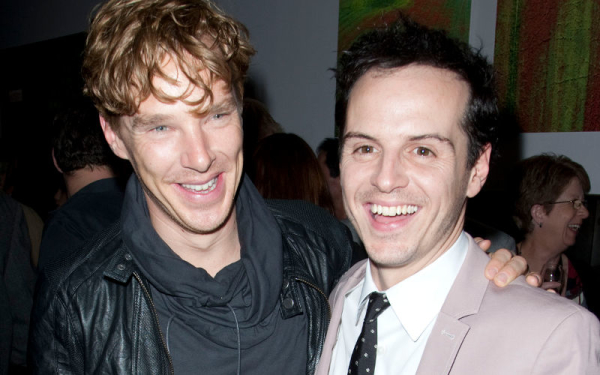Catherine Love: How can theatres build a wider fan base?
Getting audiences over the threshold is only the start; theatres have to give them a reason to stay

© Dan Wooller
We were also inspired by Matt Trueman's column on theatre and fandom, which again makes a comparison with football. "What if people cared so much about their local theatre and their favourite artists that they shaped their entire identities accordingly?" Trueman asks. His column imagines a world in which schoolkids swap stickers of their favourite RSC actors in the playground and audiences chant the name of Katie Mitchell. A bit too much to hope for, perhaps, but theatre could certainly do with cultivating a wider, more faithful fan base, and one that stretches beyond the devotees of long-running West End musicals.
One of the easiest ways of bringing in fans is through the adoration that already attaches itself to particular performers. Think Benedict Cumberbatch's eagerly awaited Hamlet – or anything with Benedict Cumberbatch in it, really. It only takes a look at swamped box offices and swelling autograph queues at stage door to prove that popular actors attract new and dedicated audiences. Performers inspire a loyalty that theatres or companies rarely do. So how to translate that fandom?
"We have to guard against celebrities being cast purely for their fame"
Recently, I was lucky enough to hear Rufus Norris talk about some of his hopes and plans for when he takes over at the National Theatre next year. Speaking at the Theatre and Performance Research Association's annual conference at Royal Holloway, University of London, he discussed his desire to combine accessibility and experimentation. One way of doing this, he suggested, is to bring in big names to work on otherwise risky projects. Rather than yet another superstar Hamlet, wouldn't it be more exciting to see those familiar faces in unfamiliar shows?
There's a definite pragmatism about the tactic proposed by Norris, but not necessarily a negative one. Sure, looked at one way it's a little cynical. But if the star actors involved are talented in their own right and interested in an experimental production to which their profile can add some appeal, it strikes me as a win-win situation. The show is opened up to wider audiences than it might otherwise attract, offering a way in for those who could feel intimidated or excluded, and the cast and creative team have the chance to try out something new on a much bigger platform.
Of course, we have to guard against celebrities being cast purely for their fame (insert your own example) and against the danger that theatre ends up becoming a star vehicle rather than the collaborative art form that it really is. Theatres also need to be aware that getting audiences over the threshold is only the start; they then have to give them a reason to stay.
But if a bit of carefully applied pragmatism begins to open the doors and nurture a genuine pool of theatre fans, is it such a bad thing? We all have our points of access, many of which then open onto bolder routes. Perhaps, in time, those who first came to the National Theatre to see that person off the telly will be fighting over their favourite Secret Theatre show or queuing around the block for Forest Fringe tickets. Now who's for a Chris Goode sticker?














